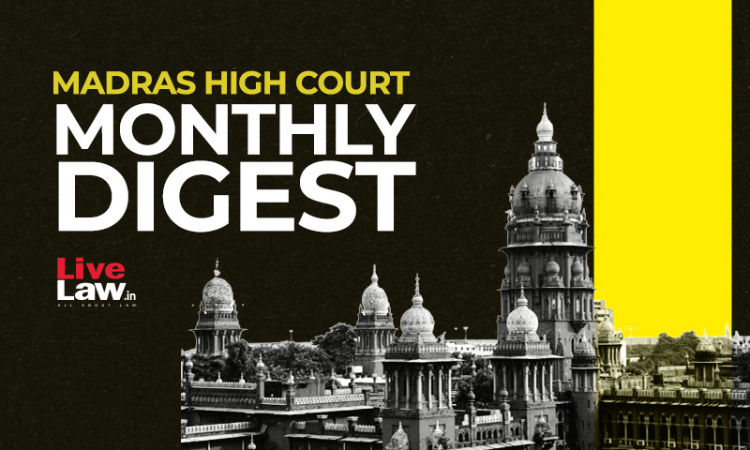- Home
- /
- High Courts
- /
- Madras High Court
- /
- Madras High Court Monthly Digest -...
Madras High Court Monthly Digest - November 2024
Upasana Sajeev
7 Dec 2024 3:00 PM IST
CITATION: 2024 LiveLaw (Mad) 415 to 2024 LiveLaw (Mad) 464 NOMINAL INDEX M.Palanisamy v The Director of Town Panchayats, 2024 LiveLaw (Mad) 415 Aunestraja v The State and Others, 2024 LiveLaw (Mad) 416 B Vidyasagar v The Government of Tamil Nadu and Others, 2024 LiveLaw (Mad) 417 M/s Jaiswal Products v State of Tamil Nadu, 2024 LiveLaw (Mad) 418 The Union of India v...
Next Story



